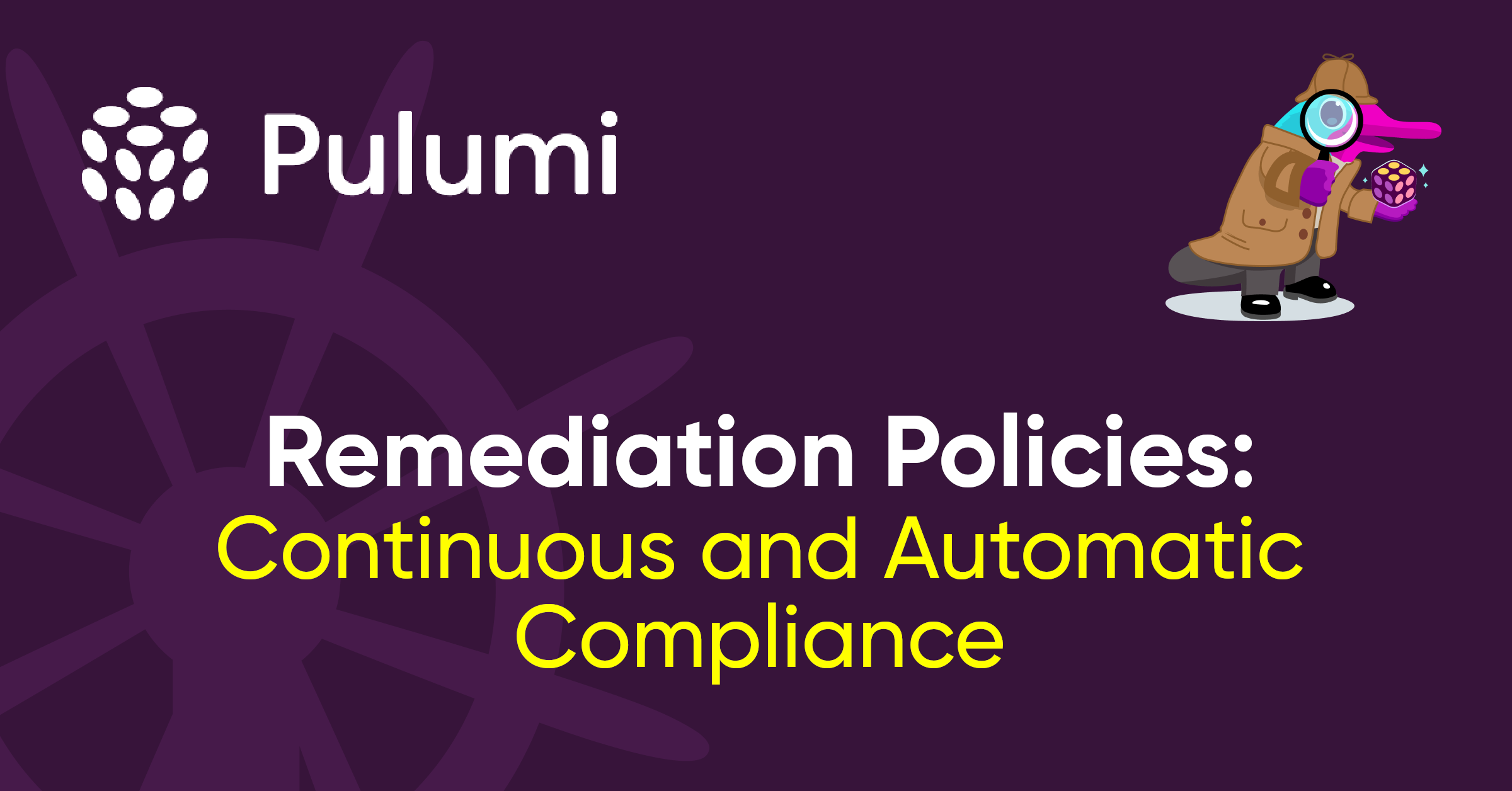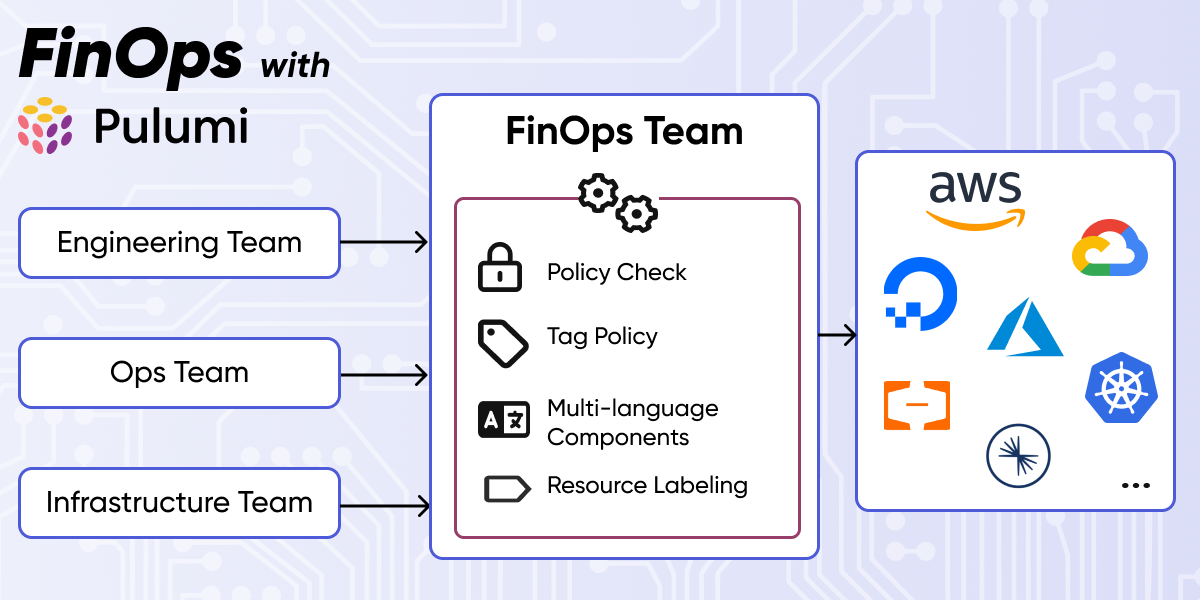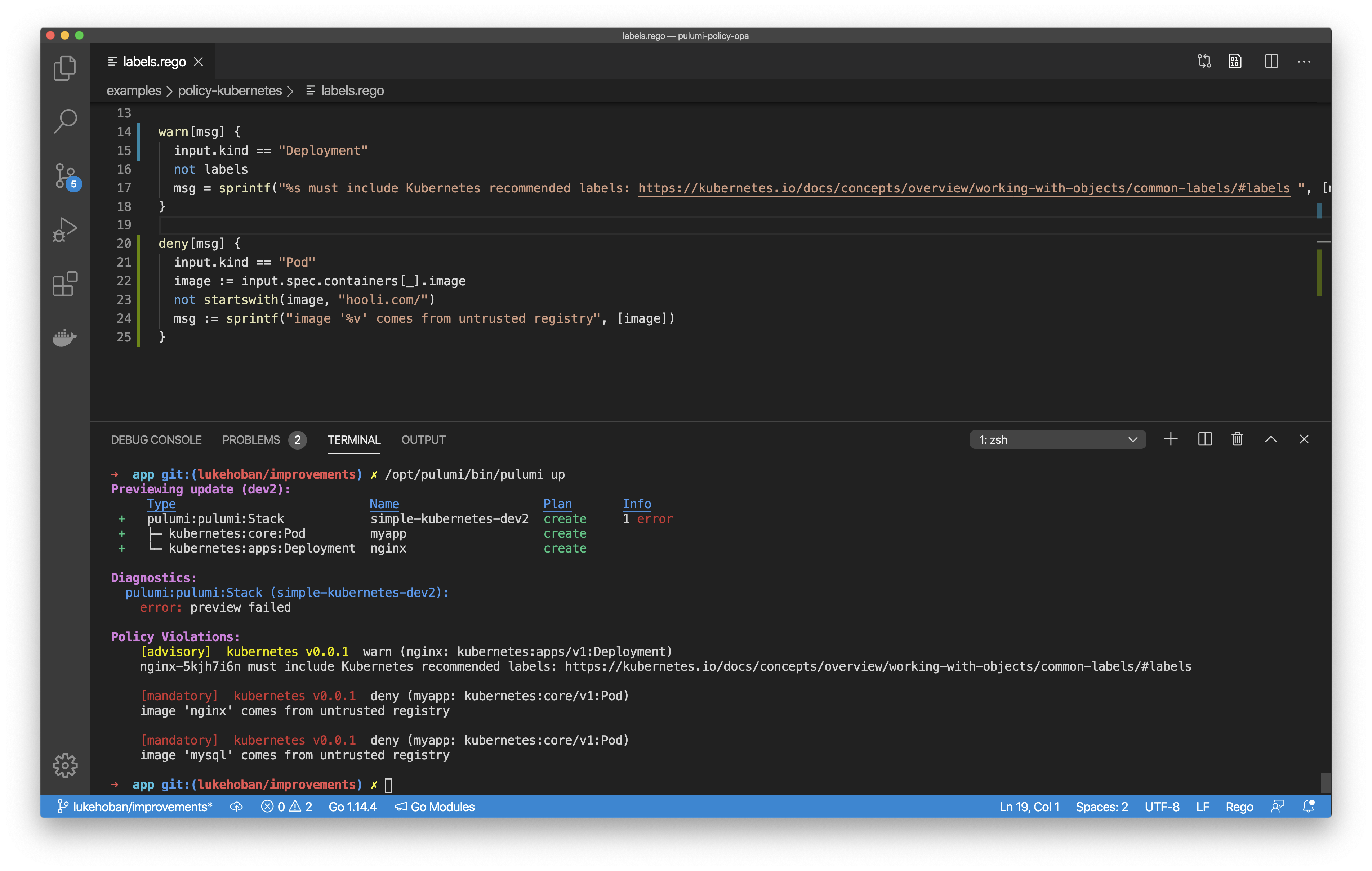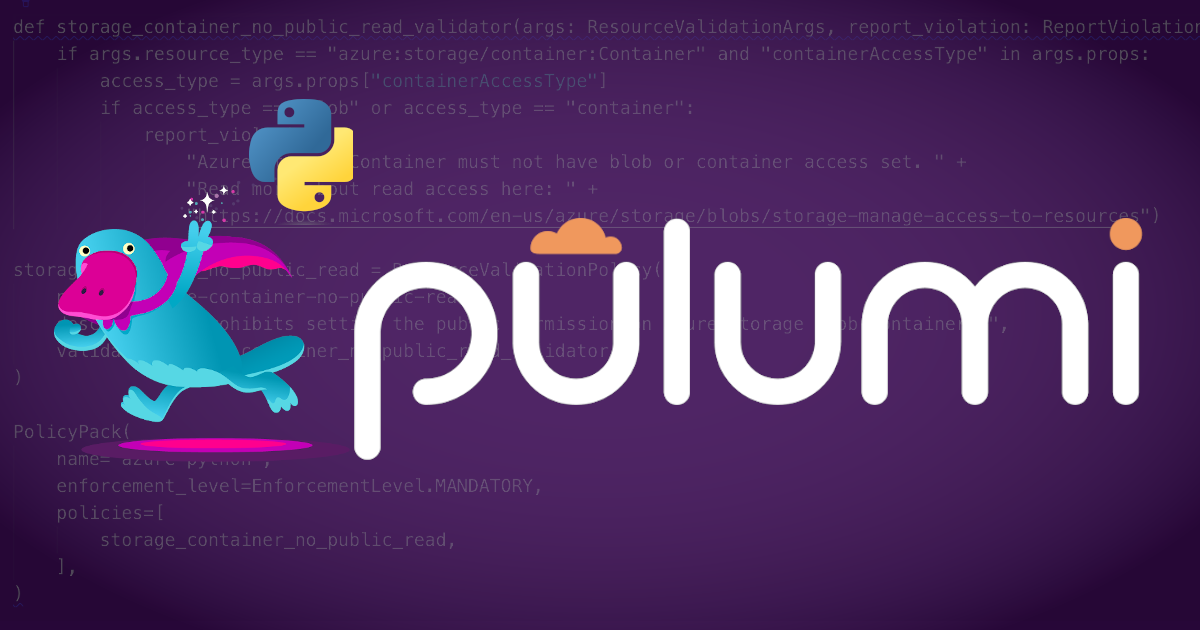Remediation Policies: Continuous and Automatic Compliance

Pulumi’s policy as code engine, CrossGuard, is already very flexible, and can enforce custom or predefined policies across a wide variety of use cases, including security, compliance, cost, and overall best practices. CrossGuard warns or issues errors should a deployment attempt to violate a policy. Last week we announced a new extension to CrossGuard called remediation policies. Remediation policies don’t just check for compliance, they go ahead and actually fix the problems in place. This ensures that every deployment across your entire team conforms, no questions asked, while also not needing to pester end users to remember all of the rules as they write their infrastructure as code, such as tagging resources a specific way. In this post, we will dig deeper into remediation policies and their use cases.








